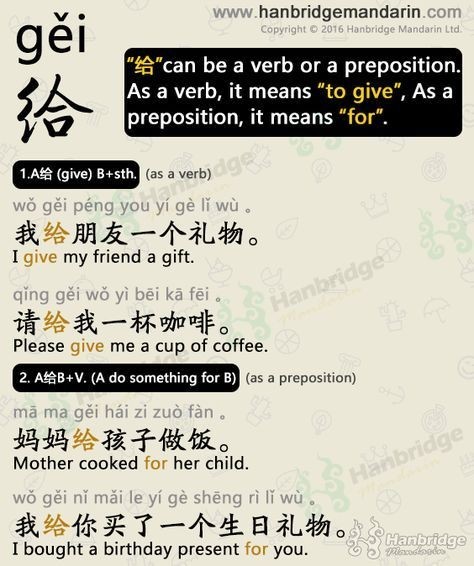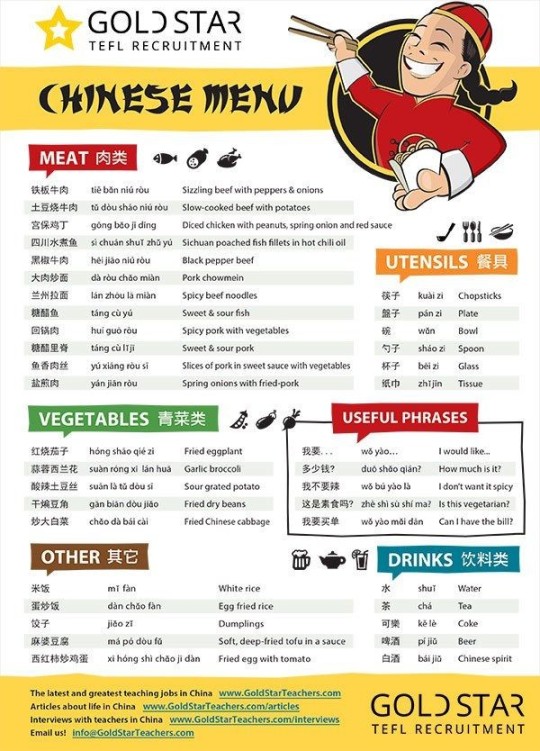#study mandarin
Text
50+ fundamental crime, suspense, & mystery Cdrama vocab words

I'm currently watching 《模仿犯》, so I was inspired to put together this list of essential vocab for 犯罪剧/悬疑剧/推理剧. I tend to gravitate towards dramas that fall into these genres.
I've sorted the words into categories. These were determined by vibes only. Definitions are adapted from MDBG, my loyal companion for nearly 10 years.
The Case
案子 ànzi - case / law case / legal case / judicial case
案件 ànjiàn - case / instance
办案 bàn'àn - to handle a case
破案 pò'àn - to solve a case
报案 bào'àn - to report a case to the authorities
命案 mìng'àn - homicide case / murder case
作案 zuò'àn - to commit a crime
现场 xiànchǎng - the scene (of a crime, accident etc) / (on) the spot / (at) the site
证据 zhèngjù - evidence / proof / testimony
真相 zhēnxiàng - the truth about sth / the actual facts
The Investigation
厘清 líqīng - to clarify (the facts) / clarification
线索 xiànsuǒ - trail / clues / thread (of a story)
细节 xìjié - details / particulars
痕迹 hénjì - vestige / mark / trace
追踪 zhuīzōng - to follow a trail / to trace / to pursue
追问 zhuīwèn - to question closely / to investigate in detail / to examine minutely / to get to the heart of the matter
排除 páichú - to eliminate / to remove / to exclude / to rule out
嫌疑 xiányí - suspicion / to have suspicions
怀疑 huáiyí - to doubt (sth) / to be skeptical of / to have one's doubts / to harbor suspicions / to suspect that
跟踪 gēnzōng - to follow sb's tracks / to tail / to shadow / tracking
不对劲 búduìjìn - fishy / wrong / not right
隐瞒 yǐnmán - to conceal / to hide (a taboo subject) / to cover up the truth
The Victim
被害者 bèihàizhě - victim (of a wounding or murder)
受害者 shòuhàizhě - casualty / victim / those injured and wounded
幸存者 xìngcúnzhě - survivor
失踪 shīzōng - to be missing / to disappear / unaccounted for
消失 xiāoshī - to disappear / to fade away
绑架 bǎngjià - to kidnap / to abduct / to hijack / a kidnapping abduction / staking
遗体 yítǐ - remains (of a dead person)
尸体 shītǐ - dead body / corpse / carcass
拯救 zhěngjiù - to save / to rescue
寻人启事 xúnrénqǐshì - missing persons notice
The Perpetrator
嫌疑犯 xiányífàn - a suspect
嫌疑人 xiányírén - a suspect
歹徒 dǎitú - evildoer / malefactor / gangster / hoodlum
凶手 xiōngshǒu - murderer / assassin
一伙儿的 yìhuǒrde - in on it together
开枪 kāiqiāng - to open fire / to shoot a gun
鬼鬼祟祟 guǐguǐsuìsuì - sneaky / secretive / furtive
可疑 kěyí - suspicious / dubious
认罪 rènzuì - to admit guilt / to plead guilty
自首 zìshǒu - to give oneself up / to surrender (to the authorities)
下落 xiàluò - whereabouts / to drop / to fall
动机 dòngjī - motive / motivation
犯罪 fànzuì - to commit a crime / crime / offense
The Police
报警 bàojǐng - to sound an alarm / to report sth to the police
警察 jǐngchá - police / police officer
警方 jǐngfāng - police
警官 jǐngguān - constable / police officer
刑警 xíngjǐng - criminal police (abbr. for 刑事警察)
被捕 bèibǔ - to be arrested / under arrest
包围 bāowéi - to surround / to encircle / to hem in
监控 jiānkòng - to monitor
检查 jiǎnchá - inspection / to examine / to inspect
调查 diàochá - investigation / inquiry / to investigate
排查 páichá - to inspect / to investigate one by one
质问 zhìwèn - to question / to ask questions / to inquire / to bring to account / to interrogate
前科 qiánkē - criminal record / previous convictions
Bonus: Here's a list of dramas I have seen/am watching in these categories:
《想见你》 Someday or One Day
《开端》 Reset
《消失的孩子》 The Disappearing Child
《她和她的她》 Shards of Her
《镇魂》 Guardian
《模仿犯》 Copycat Killer
《不良执念清除师》 Oh No! Here Comes Trouble
Now go forth and enjoy some more dramas! I'm a slow watcher, so I add new shows to my watch list faster than I can finish them.
#vocab list#cdrama#cdramas#chinese drama#taiwanese drama#chinese#mandarin#mandarin chinese#chinese language#studyblr#langblr#language study#language learning#chinese studyblr#chinese langblr#mandarin studyblr#mandarin langblr#study chinese#study mandarin#learn chinese#learn mandarin#studying chinese#learning chinese#studying mandarin#learning mandarin#languages#language blog#languageblr#chinese vocab#mandarin vocab
628 notes
·
View notes
Text
Speak DECENT CHINESE in 4 months - 8 easy tips
______
1. Have someone to guide you to get good pronunciation habits. It is almost impossible to re-learn bad habits later so make sure you get your pronunciation right from the beginning. I mean the pronunciation of the sounds, not the tones. Tones take more time to get used to and you can't rush it - but try the best you can. Some tutors don't bother too much about the pronunciation so make sure you find someone who is strict about that, you will be grateful later. Also get confident in pinyin, you will need it.
2. Understand the composition of the sentences. The word order is super easy and it stays the same all the time (the question and informative sentences have the same word order). I have a formula for the word order but I won't reveal it here, it is one of the secrets I keep for my students and people who use my materials.
3. Understand that there are no tenses in the sense we think about them in English and other languages. Learn to express future, potential future, finished action, change of state, experience in the past and circumstances of the event. See the difference between action verbs and verbs of state.
4. Learn to use modal verbs and conjuctions.
5. Build usable vocabulary based on the fact that everything in Chinese is interconnected.
6. Understand 就, 才,的 and 得
7. Don't learn grammar rules and words separately. Learn functional practical sentences that will serve you as examples of the grammar structures (then you just need to change the words in these sentences).
8. Develop your listening skills - that is very important. For that there are Youtube channels and podcasts on Spotify (and in my materials the audio part also plays an important role). You can listen to Chinese radio stations just to get the feeling of the language.
______
After 3-4 months you should feel pretty confident in normal conversations if you study regularly under competent guidance.
______
R-evolutionary learning materials and resources: https://linktr.ee/chineseffect
MAGIC PLAYBOOK for beginners
#learn chinese#learn mandarin#chinese langblr#mandarin langblr#edublr#mandarin#chinese#mandarin edublr#langblr#chinese vocabulary#mandarin chinese#chinese edublr#learning mandarin#learning chinese#study chinese#mandarin vocabulary#study mandarin#汉语#chinese studyblr#beginners chinese#chinese for beginners#learning tips#chinese tips#mandarin tips
243 notes
·
View notes
Text
Mandarin Chinese Learning Reccomendation! Jan/15/2023
I reccomend the website Chinese Grammar Wiki, when I started getting serious about learning mandarin I was 2 years into my studies but was at a basically beginner level because I had no idea how to study and get better at something like language learning, but this website definitely helped me out. Some days I would just open up the website and read through each article and it basically burned it all into my brain because just about everything I read on there I still remember today (I last used the website 5 or so years ago). The articles are super easy to understand and gives a concise description of how to use certain words without boring you to death. It was very good for my 14 year old brain at the time LOL. Give it a try :) #notsponsored
#easy mandarin#mandarin langblr#mandarin learning#learn mandarin#beginner mandarin#study mandarin#beginner chinese#study chinese#learn chinese#language learning resources
283 notes
·
View notes
Text

Guys, I swear the source website of this picture had helped me out so much both when I started learning chinese and now!
Link:
I don't usually recommend pinterest to find useful websites but I did find this website there somehow lol. Istg half the links of pinterest are unavailable or something.
#langblr#chinese langblr#mandarin langblr#mandarinblr#chineselangblr#chinese vocab#mandarin vocab#chinese vocabulary#chinese language#chinese studyblr#mandarin vocabulary#mandarin chinese#mandarin studyblr#mandarin#learn chinese#study chinese#chinese study#learn mandarin#study mandarin#learning mandarin#studying mandarin#langblog#language learning#languageblr#learning languages#zhongwen
202 notes
·
View notes
Text
learning pinyin is gonna be the death of me
#languages#langblr#language#bilingual#polyglot#studyblr#study hard#trilingual#just talking#langauge learning#chinese langblr#learn mandarin#study mandarin#mandarin langblr#study chinese#learn chinese
14 notes
·
View notes
Photo



#hsk1#hsk#learn chinese#learn mandarin#chinese#mandarin#langblr#study chinese#china#study mandarin#hanyu#putonghua#汉语#中国#basic chinese#vocab#chinese grammar#grammar#chinese vocaloid#softchinese#orientalismx
43 notes
·
View notes
Photo







我喜歡你的眼睛 你的睫毛 你的冷傲
Wǒ xǐhuān nǐ de yǎnjīng nǐ de jiémáo nǐ de lěng'ào
我喜歡你的酒窩 你的嘴角 你的微笑
wǒ xǐhuān nǐ de jiǔwō nǐ de zuǐjiǎo nǐ de wéixiào
我喜歡你全世界都知道 嘲笑 別鬧
wǒ xǐhuān nǐ quán shìjiè dōu zhīdào cháoxiào bié nào
我會繼續 請你準備好
wǒ huì jìxù qǐng nǐ zhǔnbèi hǎo
我喜歡你的襯衫 你的手指 你的味道
wǒ xǐhuān nǐ de chènshān nǐ de shǒuzhǐ nǐ de wèidào
我想做你的棉襖 你的手套 你的心跳
wǒ xiǎng zuò nǐ de mián'ǎo nǐ de shǒutào nǐ de xīntiào
我喜歡你全世界都明了 煎熬 彆氣惱
wǒ xǐhuān nǐ quán shìjiè dōu míngliǎo jiān'áo biè qìnǎo
我多耐心 請你等著瞧
wǒ duō nàixīn qǐng nǐ děngzhe qiáo
喜歡你在每一刻 每一秒
xǐhuān nǐ zài měi yīkè měi yī miǎo
喜歡你在每一處 每一角
xǐhuān nǐ zài měi yī chù měi yījiǎo
喜歡你已變成習慣難以戒掉
xǐhuān nǐ yǐ biànchéng xíguàn nányǐ jiè diào
我多喜歡你 我不知道
wǒ duō xǐhuān nǐ wǒ bù zhīdào
喜歡你讓下雨天 放晴了
xǐhuān nǐ ràng xià yǔtiān fàngqíngle
喜歡你讓下雪天 溫暖了 xǐhuān nǐ ràng xià xuě tiān wēnnuǎnle
喜歡你已變成信仰難以放掉
xǐhuān nǐ yǐ biànchéng xìnyǎng nányǐ fàng diào
我多喜歡你 你會知道
wǒ duō xǐhuān nǐ nǐ huì zhīdào
我喜歡你打籃球 每個瞬間 都很閃耀
wǒ xǐhuān nǐ dǎ lánqiú měi gè shùnjiān dōu hěn shǎnyào
我喜歡你彈鋼琴 每個音符 都很美妙
wǒ xǐhuān nǐ dàn gāngqín měi gè yīnfú dōu hěn měimiào
我喜歡你陪我看書 分心看我 偷笑
wǒ xǐhuān nǐ péi wǒ kànshū fēn xīn kàn wǒ tōu xiào
翻頁遊戲 我配合你導
fān yè yóuxì wǒ pèihé nǐ dǎo
偶爾心情 感冒發燒
ǒu'ěr xīnqíng gǎnmào fāshāo
你是甜的藥
nǐ shì tián di yào
就算down到爆
jiùsuàn down dào bào
有你煩惱全消
yǒu nǐ fánnǎo quán xiāo
喜歡你在每一刻 每一秒
xǐhuān nǐ zài měi yīkè měi yī miǎo
喜歡你在每一處 每一角
xǐhuān nǐ zài měi yī chù měi yījiǎo
喜歡你已變成習慣難以戒掉
xǐhuān nǐ yǐ biànchéng xíguàn nányǐ jiè diào
我多喜歡你 我不知道
wǒ duō xǐhuān nǐ wǒ bù zhīdào
喜歡你讓英文書 有趣了
xǐhuān nǐ ràng yīngwén shū yǒuqùle
喜歡你讓數學題 簡單了
xǐhuān nǐ ràng shùxué tí jiǎndānle
喜歡你已變成信仰難以放掉
xǐhuān nǐ yǐ biàn chéng xìnyǎng nányǐ fàng diào
我多喜歡你 你會知道
wǒ duō xǐhuān nǐ nǐ huì zhīdào
我多喜歡你 你會知道
wǒ duō xǐhuān nǐ nǐ huì zhīdào
youtube
#chinese#chinese song#song#china#mandarin#learn chinese#learn mandarin#langblr#study chinese#study mandarin#cdrama#cpop#chinese novel#hanyu#中国#汉语#学习汉语#orientalismx#headers#twitter header#chinese headers#kpop#bts
36 notes
·
View notes
Video
Learn Chinese Online through One-to-One Chinese Lessons
#study chinese#study mandarin#learn chinese#online chinese#learn mandarin#learning chinese#mandarin#learning mandarin#mandarin courses#online courses#chinese
2 notes
·
View notes
Video
youtube
Daily Routines In Chinese With Pinyin And Translation - 日常生活 Rì cháng shēng huó
In this video, we will learn vocabulary about daily routines/activities. This video is equipped with pinyin and translation so it will make it easier for us to learn Mandarin. Have a good study!
#youtube#learn chinese#learn mandarin#mandarin#chinese#mandarin language#chinese language#vocabulary#vocabulary learning#study mandarin#learn chinese online#belajar bahasa mandarin#belajar mandarin#belajar bahasa mandarin pemula#education#language learning#mandarin chinese#tumblr#today on tumblr
0 notes
Text
Learning Chinese with Lyrics: 蔡健雅 (Tanya Chua) - 遺書
I recently started listening to more Chinese music and quite by accident found Tanya Chua and her amazing voice charmed me.
My favorite line of the song: 我曾愛過的都愛過了 - I've loved everything I've ever loved.
youtube
平常不過的夜晚
平常 ping2chang2 - ordinary
這是我最後一次給自己交代
確定沒留下任何遺憾
確定 que4ding4 - to ensure
留下 liu2xia4 - to leave behind
遺憾 yi2han4 - regret
沒有任何的不安跟未知對談
對談 dui4tan2 - to talk face to face
我曾愛過的都愛過了
曾看不開的或許不一定都要釋懷
釋懷 shi4huai2 - release (tension)
我也認真過了付出多過獲得
認真 ren4zhen1- to take seriously
付出 fu4chu1 - to invest energy in friendship
但願他們記得感動的每一刻
感動 - to touch sb emotionally
把留下的淚水藏不住的心碎
心碎 xin1sui4 - heartbroken
寫成歌給人安慰
我閉上眼睛唱著 感謝這一生沒白費
白費 bai2fei4 - to waste energy
世界會照樣運轉
只是我已出發在旅程另一段
走在人群中特別孤單
人群 ren2gun2 - crowd
孤單 gu1dan1 - lonely
這個錯誤的安排不需要重來
我曾愛過的都愛過了
曾看不開的或許不一定都要釋懷
我也認真過了付出多過獲得
但願他們記得感動的每一刻
把留下的淚水藏不住的心碎
寫成歌給人安慰
我閉上眼睛唱著 感謝這一生沒白費
我會留下什麼 請替我保管就別不捨得
保管 bao3guang3 - to guarantee
We’re gonna make it through
我是被疼愛的 我會好好的
得到你的祝福怎麼會不想哭
祝福 zhu4fu2 - blessings
我會去片大海無憂無慮去愛
無憂無慮 wu2you1wu2lu4- carefree and without worries
像塵埃自由自在
自由自在 zi4you2zi4zai4 - free and easy
在那一片大海告別了感慨
So GoodNight
Goodbye
#learning chinese with lyrics#cpop#chinese music#mandopop#chinese vocab#chinese language#langblr#chinese study#tanya chua#study mandarin#Youtube
1 note
·
View note
Text
10.08.2022 17:34pm
i practice speaking mandarin while my partner plays video games and secretly has one side of his headset off to listen ( ˘⌣˘)♡(˘⌣˘ )
#this is an unspoken thing we do#we both love the dynamic#langblr#langblog#study mandarin#study sesh#study#studyblr#study inspiration#studyspo#studyspiration#study community#thoughts
1 note
·
View note
Text
75 essential single-character verbs (单字动词)

When I started consuming more native Chinese content, I quickly discovered an area in which my knowledge was lacking: single-character verbs. In my experience, it’s very easy to focus on learning words consisting of two or more characters and overlook single-character words.
Driven by curiosity, I went through my Anki deck (and also wracked my brain) to generate a list of characters/words that I have learned over the past couple years (roughly). Then I selected 75 verbs that are fairly common and important to know. They skew towards intermediate and advanced vocabulary.
Definitions are from MDBG. For characters with additional meanings that I am not yet familiar with, I have bolded the meanings I want to share.
(1) 抢 qiǎng - to fight over / to rush / to scramble / to grab / to rob / to snatch
(2) 救 jiù - to save / to assist / to rescue
(3) 扶 fú - to support with the hand / to help sb up / to support oneself by holding onto something / to help
(4) 催 cuī - to urge / to press / to prompt / to rush sb / to hasten sth / to expedite
(5) 夹 jiā - to press from either side / to place in between / to sandwich / to carry sth under armpit / wedged between / between / to intersperse / to mix / to mingle / clip / folder / Taiwan pr. [jia2]
(6) 咬 yǎo - to bite / to nip
(7) 砸 zá - to smash / to pound / to fail / to muck up / to bungle
(8) 毁 huǐ - to destroy / to ruin / to defame / to slander
(9) 嚷 rǎng - to shout / to bellow / to make a big deal of sth / to make a fuss about sth
(10) 塞 sāi - to stop up / to squeeze in / to stuff / cork / stopper
(11) 贪 tān - to have a voracious desire for / to covet / greedy / corrupt
(12) 拆 chāi - to tear open / to tear down / to tear apart / to open
(13) 掏 tāo - to fish out (from pocket) / to scoop
(14) 跪 guì - to kneel
(15) 摘 zhāi - to take / to borrow / to pick (flowers, fruit etc) / to pluck / to select / to remove / to take off (glasses, hat etc)
(16) 拎 līn - to lift up / to carry in one's hand / Taiwan pr. [ling1]
(17) 扛 káng - to carry on one's shoulder / (fig.) to take on (a burden, duty etc)
(18) 拽 zhuài - to pull / to tug at (sth)
(19) 愣 lèng - to look distracted / to stare blankly / distracted / blank / (coll.) unexpectedly / rash / rashly
(20) 搂 lǒu - to hug / to embrace / to hold in one's arms
(21) 垮 kuǎ - to collapse (lit. or fig.)
(22) 撑 chēng - to support / to prop up / to push or move with a pole / to maintain / to open or unfurl / to fill to bursting point / brace / stay / support
(23) 甩 shuǎi - to throw / to fling / to swing / to leave behind / to throw off / to dump (sb)
(24) 围 wéi - to encircle / to surround / all around / to wear by wrapping around (scarf, shawl)
(25) 愁 chóu - to worry about
(26) 插 chā - to insert / stick in / pierce / to take part in / to interfere / to interpose
(27) 漏 lòu - to leak / to divulge / to leave out by mistake / waterclock or hourglass (old)
(28) 披 pī - to drape over one's shoulders / to open / to unroll / to split open / to spread out
(29) 歇 xiē - to rest / to take a break / to stop / to halt / (dialect) to sleep / a moment / a short while
(30) 抄 chāo - to make a copy / to plagiarize / to search and seize / to raid / to grab / to go off with / to take a shortcut / to make a turning move / to fold one's arms
(31) 哼 hēng - to groan / to snort / to hum / to croon / humph!
(32) 哄 hǒng - to deceive / to coax / to amuse (a child)
(33) 啃 kěn - to gnaw / to nibble / to bite
(34) 眯 mī - to narrow one's eyes / to squint / (dialect) to take a nap
(35) 趴 pā - to lie on one's stomach / to lean forward, resting one's upper body (on a desktop etc) / (Tw) percent
(36) 揍 zòu - to hit / to beat (sb) / (coll.) to smash (sth)
(37) 蹭 cèng - to rub against / to walk slowly / (coll.) to freeload
(38) 凑 còu - to gather together, pool or collect / to happen by chance / to move close to / to exploit an opportunity
(39) 敲 qiāo - to hit / to strike / to tap / to rap / to knock / to rip sb off / to overcharge
(40) 滑 huá - to slip / to slide / slippery / smooth / sly / slippery / not to be trusted
(41) 碎 suì - to break down / to break into pieces / fragmentary
(42) 盯 dīng - to watch attentively / to fix one's attention on / to stare at / to gaze at
(43) 塌 tā - to collapse / to droop / to settle down
(44) 背 bēi - to be burdened / to carry on the back or shoulder
背 bèi - the back of a body or object / to turn one's back / to hide something from / to learn by heart / to recite from memory / unlucky (slang) / hard of hearing
(45) 数 shǔ - to count / to count as / to regard as / to enumerate (sb's shortcomings)
(46) 按 àn - to press / to push / to leave aside or shelve / to control / to restrain / to keep one's hand on / to check or refer to / according to / in the light of / (of an editor or author) to make a comment
(47) 压 yā - to press / to push down / to keep under (control) / pressure
(48) 亲 qīn - parent / one's own (flesh and blood) / relative / related / marriage / bride / close / intimate / in person / first-hand / in favor of / pro- / to kiss / (Internet slang) dear
(49) 补 bǔ - to repair / to patch / to mend / to make up for / to fill (a vacancy) / to supplement
(50) 舔 tiǎn - to lick / to lap
(51) 拼 pīn - to piece together / to join together / to stake all / adventurous / at the risk of one's life / to spell
(52) 埋 mái - to bury
(53) 抖 dǒu - to tremble / to shake out / to reveal / to make it in the world
(54) 涂 tú - to apply (paint etc) / to smear / to daub / to blot out / to scribble / to scrawl / (literary) mud / street
(55) 抹 mǒ - to smear / to wipe / to erase / classifier for wisps of cloud, light-beams etc
(56) 吞 tūn - to swallow / to take
(57) 拦 lán - to block sb's path / to obstruct / to flag down (a taxi)
(58) 露 lòu - to show / to reveal / to betray / to expose
露 lù - dew / syrup / nectar / outdoors (not under cover) / to show / to reveal / to betray / to expose
(59) 滚 gǔn - to boil / to roll / to take a hike / Get lost!
(60) 扣 kòu - to fasten / to button / button / buckle / knot / to arrest / to confiscate / to deduct (money) / discount / to knock / to smash, spike or dunk (a ball) / to cover (with a bowl etc) / (fig.) to tag a label on sb / (Tw) (loanword) code
(61) ��� kuā - to boast / to exaggerate / to praise
(62) 挥 huī - to wave / to brandish / to command / to conduct / to scatter / to disperse
(63) 求 qiú - to seek / to look for / to request / to demand / to beseech
(64) 吸 xī - to breathe / to suck in / to absorb / to inhale
(65) 响 xiǎng - echo / sound / noise / to make a sound / to sound / to ring / loud / classifier for noises
(66) 擦 cā - to wipe / to erase / rubbing (brush stroke in painting) / to clean / to polish
(67) 踩 cǎi - to step on / to tread / to stamp / to press a pedal / to pedal (a bike) / (online) to downvote
(68) 撕 sī - to tear
(69) 扫 sǎo - to sweep
(70) 锁 suǒ - to lock / to lock up / a lock (CL:把)
(71) 扎 zhā - to prick / to run or stick (a needle etc) into / mug or jug used for serving beer (loanword from "jar")
(72) 撞 zhuàng - to knock against / to bump into / to run into / to meet by accident
(73) 追 zhuī - to chase / to pursue / to look into / to investigate / to reminisce / to recall / to court (one's beloved) / to binge-watch (a TV drama) / retroactively / posthumously
(74) 抽 chōu - to draw out / to pull out from in between / to remove part of the whole / (of certain plants) to sprout or bud / to whip or thrash
(75) 删 shān - to delete
#vocab list#chinese#mandarin#mandarin chinese#chinese language#studyblr#langblr#language study#learning languages#language learning#chinese studyblr#chinese langblr#mandarin studyblr#mandarin langblr#study chinese#study mandarin#learn chinese#learn mandarin#studying chinese#learning chinese#studying mandarin#learning mandarin#chinese vocab#mandarin vocab#foreign languages#language#languages#language blog#languageblr#language stuff
759 notes
·
View notes
Text

山很高,海很深 /shān hěn gāo, hǎi hěn shēn/
MOUNTAINS ARE HIGH, SEAS ARE DEEP
________
Beginner?
MAGIC PLAYBOOKS
Intermediate?
WORDPLAYS
FREE 12 DAY MANDARIN CHALLENGE
#chinese#mandarin#learn chinese#learn mandarin#chinese langblr#mandarin langblr#edublr#langblr#mandarin edublr#chinese vocabulary#mandarin chinese#chinese edublr#study chinese#learning chinese#learning mandarin#mandarin vocabulary#study mandarin#中文#汉语#chinese studyblr#mountain#mountains#sea#scenery#nature#daoism#dao
21 notes
·
View notes
Text
Mandarin learning material recommendations:
My favorite Mandarin dictionaries:
—
MDBG
I’m not even gonna try listing all of the features because there’s just so many and I’ve used it for many years now and on a daily basis. Not to mention it is constantly updated. In terms of features and overall quality, MDBG is the best in my opinion.
MandarinSpot’s Annotator
Sometimes has slightly different definitions compared to MDBG, and someone it will have the definition for words that MDBG does not have entered yet. Also, it helpful for anyone who reads Chinese best horizontally as opposed to listed vertically like on MDBG.
Pleco (app)
Most similar to MDBG, but for your smart phone.
—
Important Note:
Please keep in mind that none of these dictionaries are perfect and language is constantly evolving, so new terms are not likely to be in any of these dictionaries.  there is not many moderators for these dictionaries so sometimes definitions and words won’t be entered in for weeks or even months.
If you find yourself with some thing that is clearly a word but does not have an English definition entered into either of these dictionaries it works best to look up the definition in Chinese on Baidu Dict or Google, or even check out Wikitionary/Wikipedia. 
—
PLEASE COMMISSION ME I BEG YOU
#chinese langblr#mandarin langblr#learn chinese#chinese lesson#chinese vocab#chinese to english#language learning#chinese language#language learning recommendation#language resource#language learning resources#language resources#mandarin learning#mandarin to english#study mandarin#learn mandarin#MDBG#study chinese#chinese learning#language learning material#study material
41 notes
·
View notes
Text



Mandarin Chinese restaurant vocabulary. I found much of the vocabulary these posts really useful for when I ordered food yesterday!
Sources of these pictures and other useful posts:
♤ ♡ ◇ ♧ ☆ ♤ ♡ ◇
#chinese langblr#langblr#mandarin langblr#mandarinblr#chinese vocab#mandarin vocab#learn chinese#study chinese#study mandarin#learn mandarin#mandarin#mandarin chinese#mandarin studyblr#mandarin vocabulary#learning mandarin#chinese#chinese language#chinese studyblr#chinese vocabulary#studying chinese#english to chinese#chinese learning#studying mandarin#langblog#language learning#languageblr#learning languages#study hard#studyblr
191 notes
·
View notes
Link

That's Mandarin is a premier Chinese Language School that has been delivering excellence in Chinese teaching for over 17 years to more than 50,000 students of different nationalities.

They provide classes in Shanghai, Beijing and Suzhou, as well as anywhere in the world online via their in-house platform NihaoCafe -- an interactive Chinese learning platform that lets you connect with native Chinese teachers online, and review your digital class notes.

NihaoCafe's content features HSK-graded videos, articles, and engaging exercises. Their special teaching methods (Link Words, storytelling technique, etc.), can ensure that the students can learn Chinese faster.

#learn chinese#hsk#how to learn chinese#why learn chinese#chinese language#mandarin chinese#to learn chinese#learn to speak chinese#language chinese#mandarin school reviews#learn mandarin in shanghai#learn mandarin in china#study mandarin#beijing chinese school#online school#language school#best online school#k12 academics
0 notes